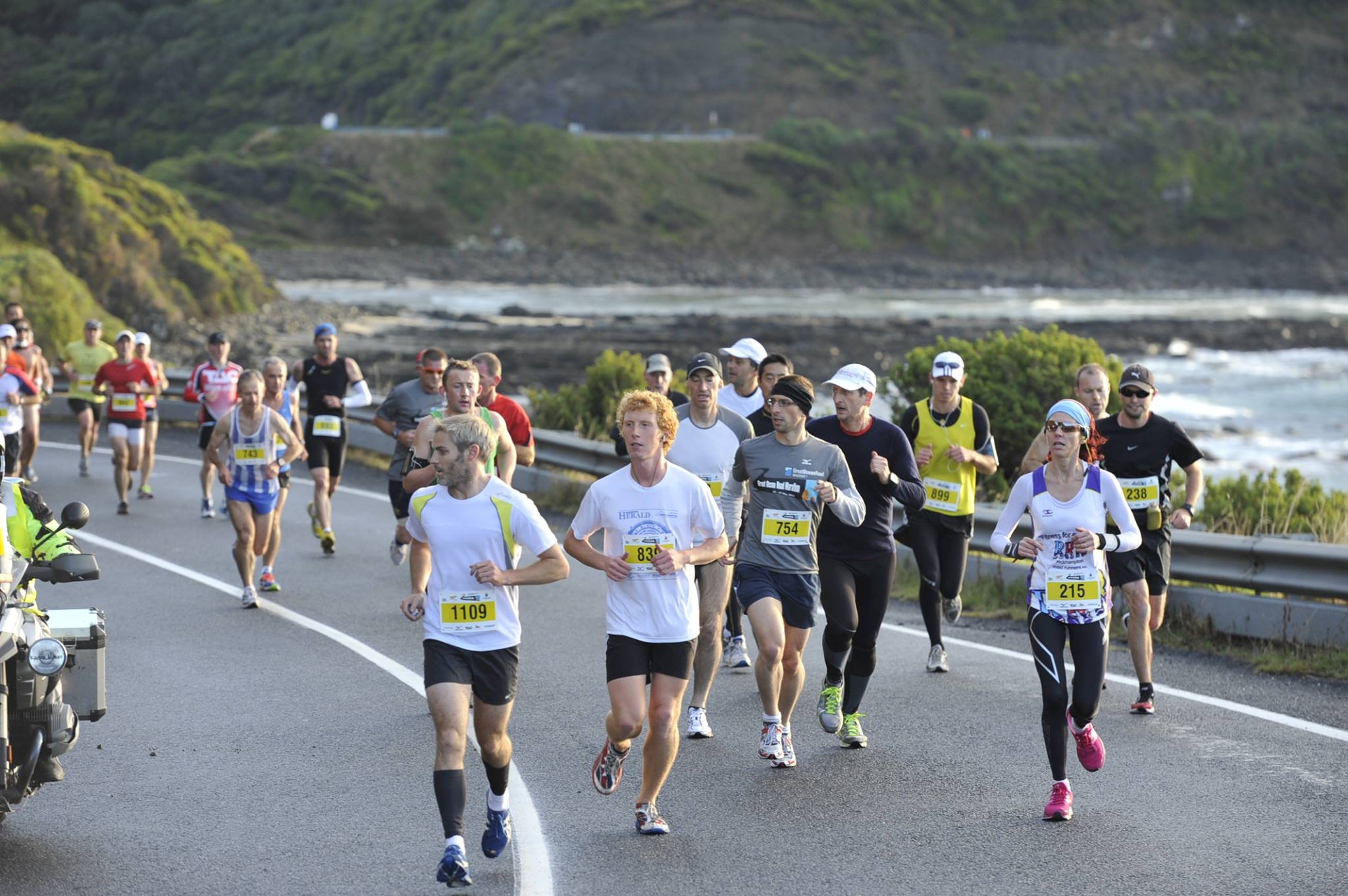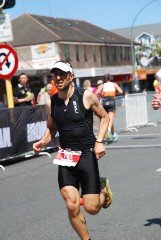
A nice group pic from the Great Ocean Road Marathon in 2013
For my post this week, I wanted to bring you something I recently found and have implemented as part of my training. As part of marathon training for a race in late April, after wanting to qualify for Boston, I realised that to knock off seven minutes from my marathon PB, I needed to do something different. That's when I came across the 9 Mile Marathon Training Plan being advertised by Marlies Kort a Dutch running and triathlon coach.
Links
http://the9milemarathon.com
Disclaimer - This post is not an advertisement or has been requested by the author of the 9 Mile Marathon Training Plan with the product purchased by myself, and all opinions provided are my own.
The 9 Mile Marathon Training Plan has been created by Dutch running and triathlon coach Marlies Kort who is also an experienced runner and triathlete. The plan is pretty simple and basically suggests that marathon training for someone aiming for a race time between 3 and 5 hours, can be obtained with a plan lasting 90 days, consisting of only 3 runs per week. The longest runs you will be performing are in the final 3 weeks of the plan with each run being only 9 miles, or 15 km.
It's made clear from the start of the book that if you're aiming for a marathon time faster than 3 hours, then this training is not for you. This is most likely where conventional marathon training comes in. The 9 Mile Marathon Training Plan has been designed for age group runners that can meet the following criteria:
- Have been running for over one year.
- Is injury free.
- Is able to run at least 6 miles or 9.5 km in under 65 minutes.
- Owns a GPS watch with a heart rate monitor.
- Can commit to a 90 day training plan with 3 runs per week.
- Is able to commit to a maximum of 3 - 5 hours of training per week.
The training plan moves away from conventional marathon training where it removes longer runs, total weekly mileage is way under the usual +40 miles per week and tries to promote itself as a smarter way of training.
The training is based on research performed by Dutch medical researcher Stans van der Poel, where the training is focused on a specific heart rate for each runner to train to. It allows the runner to stay fresh, with each run being considered more as a quality session.
The Theory Behind The Training
Both Poel and Kort argue the following reasons for the success of the training.
1- Accumulated Fatigue Avoidance (AFA)
2- Energy Supply Switch (ESS)
AFA basically comes down to the fact that allows a runner the ability to fully recover between training session resulting in each successive training session focusing more quality than quantity. It makes sure the runner is less susceptible to injury and overtraining which also ensures more consistency. When it refers to ESS, it also states in the book the training plan the runner needs to move away from a reliance on carbohydrates. It is definitely not suggesting carbohydrates be removed completely from your diet but it is suggesting the training plan is trying to train the body to utilize fat as fuel and do this at a higher heart rate.
How Does It Work?
For this plan to work you need to get your Marathon Heart Rate(MHR) which gives you the heart rate you need to be both training at and running your goal race at. The training plan gives full details on how to work out your MHR, but in short, you need to perform a test to obtain your Critical Heart Rate(CHR) or what comes close to your maximum heart rate, you then plug the details into an equation to get your MHR.
Like I said earlier you are then using this heart rate value to perform your training at. The 12 week program starts at approximate 9 km for each training run for 3 weeks, then 11km for 3 weeks, then 13 km for 3 weeks, then your final 3 weeks you will be running 15km for each of your training runs. The training plan does offer some flexibility, and almost recommends you add some cross training and core strength work into your training. You can also swap one or two training runs out for some speed work, or if you feel you need it a longer run to help your mental preparation for your marathon.
Summing It All Up
For me personally, I have been incorporating it with my swim and bike training and it fits in nicely. I am currently in the last three weeks of the plan and my runs are going a long nicely and feel that after about 45 minutes, my body is feeling like I could run at that pace for a while, but am not sure if I will be able to get through at that pace for a full marathon. I have taken the option to perform a few longer runs in the build up to the race to make sure I am able to get through the full 42km.
I can't wait to get to the race to tell you more, so stay tuned.

Now over two years ago, a pic of me running Ironman New Zealand
About the Author
Hey I'm Vince, an Aussie living in New Zealand, trying my best to make the most of the time I have. I work as a Software Engineer but love to run and all aspects of it, including geeking out on the latest science to help get the most out of my body.
For more information about @runningproject please see the latest status report:
@runningproject/the-steem-running-project-7th-status-report-we-are-already-46-approved-runners
Also, don't forget to vote for your "Running Author of the Week"
@runningproject/vote-your-running-author-of-the-week-the-steem-running-project-wk10-by-runningproject
Post created by @run.vince.run on behalf of @runningproject
